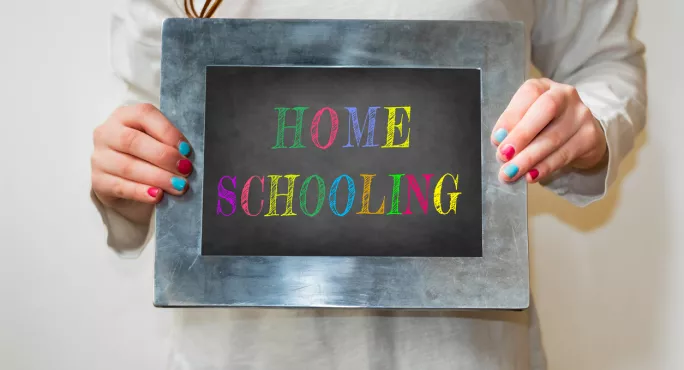- Home
- Most pupils struggled with learning in lockdown
Most pupils struggled with learning in lockdown

More than half of pupils struggled to continue their education during lockdown, according to new data.
Polls from the Office for National Statistics show that 52 per cent of parents thought their child had struggled to continue learning, with 77 per cent citing a lack of motivation as a key factor and 43 per cent blaming a lack of guidance and support.
On average, parents of children aged 5 to 10 said their child was doing about 10 hours of school work per week, rising to 16 hours for children aged 11 to 15.
Opinion: I learned a lot from being homeschooled
Coronavirus: A parent’s diary of homeschooling
Comment: I have finally cracked home school
But the ONS survey found that when there was a child aged 4 or under in the house, the amount of time spent on schoolwork by those aged five to 10 was significantly lower.
It also found that 13 per cent of children aged 5 to 10 had accessed real-time live lessons from schools, rising to 44 per cent for those aged 16 to 18.
Coronavirus: The impact of homeschooling on parents’ wellbeing
Most children aged 16 to 18 who were in full-time education (64 per cent) thought that continuing their education at home would negatively affect their future plans, the data also showed.
The ONS assessed surveys of more than 12,000 people in the UK between 3 April and 7 June about their experiences of homeschooling during the pandemic.
Of parents who were homeschooling, 34 per cent of women said it was negatively affecting their own wellbeing, compared with one in five men.
Meanwhile, 43 per cent of homeschooling parents thought being at home and trying to learn was negatively affecting the wellbeing of their children.
Parents were most likely to help their children with schoolwork in the afternoons.
During April, only half of parents who were homeschooling (49 per cent) strongly or somewhat agreed that they were confident in their abilities to homeschool their children.
And nearly a third (30 per cent) of parents who were homeschooling and in employment said it was negatively affecting their job. For parents in employment, those in the highest income band of £40,000 or more a year were significantly more likely - at 43 per cent - to say this than those on lower incomes (16 per cent).
For those homeschooling in May, 67 per cent of parents in employment said homeschooling had affected their job. More than one in four (28 per cent) said one of the reasons was having to work around homeschooling responsibilities, and almost three-fifths of parents who gave this reason were women (59 per cent).
Hugh Stickland, from the ONS, said: “Exploring people’s experiences during these past challenging months, we have continually seen that not everyone’s experience is the same. This is true for parents.
“The age of the children, especially, makes a big difference to their experience and, of course, if there is another adult with whom to share the additional work and responsibilities of life under lockdown.
“Most children engaged with homeschooling, with online resources playing an especially large role in older children’s education.
“Men have been more involved than before in ‘developmental’ aspects of childcare. But many parents voiced concerns about the impact the experience had on their work and on their own and their children’s wellbeing and mental health.”
Register with Tes and you can read two free articles every month plus you'll have access to our range of award-winning newsletters.
Keep reading with our special offer!
You’ve reached your limit of free articles this month.
- Unlimited access to all Tes magazine content
- Save your favourite articles and gift them to your colleagues
- Exclusive subscriber-only stories
- Over 200,000 archived articles
- Unlimited access to all Tes magazine content
- Save your favourite articles and gift them to your colleagues
- Exclusive subscriber-only stories
- Over 200,000 archived articles



